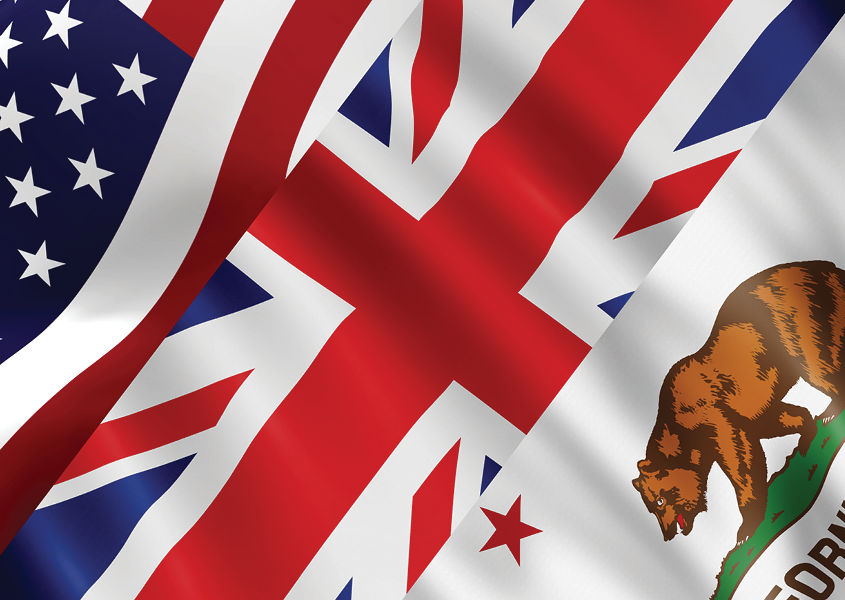
The United States and the United Kingdom resumed trade talks at the end of March, two years after they were frozen and eight months after the U.K.’s “fast track” status to a trade deal, under the Trade Promotion Authority, expired.
U.S. Trade Representative (USTR) Katherine Tai and U.K. Secretary of State for International Trade Anne-Marie Trevelyan met in Baltimore for the two-day event. The pair toured the Port of Baltimore and met with U.S. and U.K. business and labor representatives.
In Baltimore, negotiators reached a deal to end the four-year-old dispute that began in March 2018 when President Donald Trump imposed tariffs on steel and aluminum from the U.K. The partial removal of the tariffs eliminates an irritant in the U.S.-U.K. trade relationship and comes at a time when the two allies are eager to further unify against Russian aggression in Ukraine.
Steel & Aluminum Tariffs
Under the new agreement, the U.S, will replace the 25% tariffs on steel and aluminum with a tariff-rate quota system that will allow a “historically based” volume of British steel and aluminum to enter the U.S. without duties, but shipments above that level will still be subject to the Trump-era duties.
In return, the U.K. will lift retaliatory duties on some $500 million worth of American products that include whiskey, Harley Davidson motorcycles, and Levi’s jeans.
Trade Deal Goals
During the meeting, USTR Tai and Secretary Trevelyan agreed on an agenda for trade negotiations that includes small and medium-sized enterprises; digital trade; supply chains; labor rights and the environment; forced labor; decarbonization incentives; gender and racial equity; and trade-distorting third country practices.
At a press conference, USTR Tai referred to trade agreements as a “very 20th century tool,” hinting at perhaps a more modernized process of negotiations with goals that look to the future.
Before the Baltimore meeting, Secretary Trevelyan released a 10-point plan internal memo for the U.S. trade dialogue.
The memo outlines goals of: addressing the challenges and opportunities of the modern global economy and supporting inclusive growth; strengthening protections for labor rights and the environment; ensuring international trade policies support domestic investments; supporting efforts to decarbonize; fostering opportunities for micro, small and medium-sized enterprises; promoting gender equality and women’s empowerment; supporting the benefits of the digital economy; addressing trade distortions and barriers; and promoting supply chain resilience.
At the conclusion of the meeting, dubbed the “U.S.-U.K. Dialogue on the Future of Atlantic Trade,” it was determined that another meeting would take place in Scotland in late April.
Trade Overview
Despite the U.S. having no trade deal with the trans-Atlantic region, trade hit a record high in 2021, according to a new report from the American Chamber of Commerce European Union.
Europe attracted 63% of total U.S. global investment in 2020–2021, and in 2021, trans-Atlantic trade in goods reach $1.1 trillion.
U.S-U.K. Trade
Two-way trade between the United States and the United Kingdom was $117.8 billion in 2021 and the U.K. was the seventh largest importer of U.S. goods. The total value of those imports was $61.4 billion.
Top exports to the United Kingdom were primary metal manufacturing, making up 16.3%, followed by chemicals, transportation equipment, and oil and gas.
The U.S. imported $56.36 billion from the U.K. in 2021. Transportation equipment accounted for 21.2% of the total, followed by chemicals, non-electrical machinery, and reimports. (U.S. Department of Commerce)
California-U.K. Trade
The United Kingdom is California’s 12th largest export destination, with more than $4.35 billion in exports in 2021, a decrease from $4.9 billion in 2020.
Computer and electronic products brought in $1.09 billion, followed by chemicals, transportation equipment, and second-hand merchandise, accounting for $789 million, $364 million, and $346 million, respectively.
In 2021, imports into California from the United Kingdom were approximately $3.9 billion, an increase from $3.7 billion in 2020, but a decrease from pre-COVID levels. Top import categories were transportation equipment, which made up 30% of the total, followed by computer/electronic products, non-electrical machinery, and chemicals.
Investment Overview
According to the U.S. Department of Commerce, the U.S.-U.K. investment relationship is the largest in the world, valued at more than $1 trillion in 2016 and creating over two million jobs, about one million in each country.
British investment is key in the U.S. More than a million Americans go to work every day for British companies. Similarly, one million Brits go to work for America companies every day. British investment is specifically vast in California, where it supports approximately 90,000 jobs.
U.K. foreign direct investment (FDI) into the U.S. in 2020 totaled $480.78 billion, while FDI from the U.S. into the U.K. totaled $890.08 billion. The U.K. was the fourth largest source of FDI in the U.S. in 2020.
The U.K. contributed $7.1 billion to research and development in the U.S. in 2019 and an additional $52.3 billion to expanding U.S. exports. The top industry sectors for British FDI in the United States are: business services, software and information technology (IT) services, financial services, communications, industrial equipment, and transportation. (Select USA)
In California, the United Kingdom is the second largest source of FDI through foreign-owned enterprises (FOEs). In 2020, British FOEs in California provided more than 100,231 jobs through 2,380 firms, amounting to $8.88 billion in wages.
The top jobs by sector are: professional/business services, manufacturing, retail trade, transportation/warehousing/utilities, and leisure and hospitality (World Trade Center Los Angeles FDI Report, June 2021).

